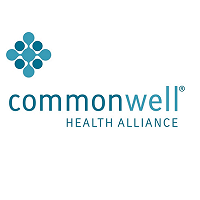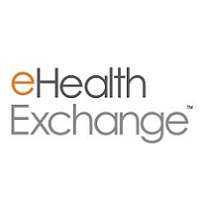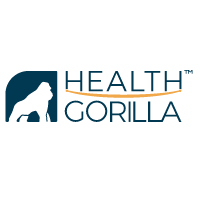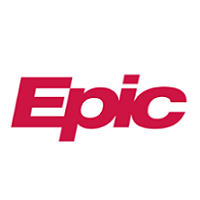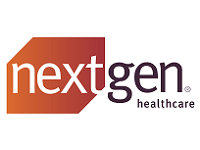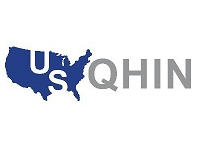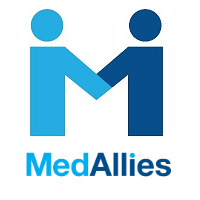We have now past the 18 year mark in our quest for healthcare interoperability. Under an executive order from president G W Bush, the ONC was established and Dr. David Brailer was dubbed “America’s first Health Information Czar.” The Meaningful Use program was then born out of the HITECH Act and Merit-Based Incentive Payment System was then born our of the MACRA legislation. And then information sharing from the CURES Act. And now the release of Trusted Exchange Framework and the Common Agreement (TEFCA). All trying to move our healthcare system to the digital age, better outcomes, controlling and reducing costs, and patient access to their health data. It has not been an easy road and the debate of the journey will never end.
TEFCA News
The Sequoia Project Releases Common Agreement Standard Operating Procedures (SOPs) and QHIN Application – The Sequoia Project, selected by the Office of the National Coordinator for Health IT (ONC) as the Recognized Coordinating Entity (RCE) to support the implementation of the Trusted Exchange Framework and Common Agreement (TEFCA), released the following final documents:
- Qualified Heath Information Network (QHIN) Application
- Qualified Heath Information Network (QHIN) Onboarding & Designation SOP
- Means To Demonstrate U.S. Ownership and Control of a QHIN SOP
- Means To Demonstrate U.S. Ownership and Control of a QHIN SOP Questionnaire
eHealth Exchange and CRISP Shared Services Announce QHIN Intentions – eHealth Exchange announced that CRISP Shared Services, which provides health information exchange (HIE) and health data utility infrastructure for five statewide non-profit HIE organizations, intends to be the first participant in eHealth Exchange’s anticipated Qualified Health Information Network (QHIN). eHealth Exchange must first go through the application process and be selected to serve as a QHIN under the Office of the National Coordinator’s (ONC’s) Trusted Exchange Framework and Common Agreement (TEFCA).
NextGen Healthcare Announces Intention to Become a Qualified Health Information Network – NextGen Healthcare, Inc. (Nasdaq: NXGN), a provider of cloud-based healthcare technology solutions, announced that it will apply to become a Qualified Health Information Network (QHIN) under TEFCA in a move that underscores the company’s commitment to interoperability. NextGen Healthcare supports more than 100,000 providers with its ambulatory electronic health records (EHR) and practice management (PM) solutions, as well as one-third of health information exchanges (HIEs) across the country, with tools that drive interoperability. The company is the first ambulatory-focused solutions provider to announce its intention to become a QHIN.
Kno2 To Apply for QHIN Designation Under TEFCA – Kno2® publicly announced the intention to apply to become a Qualified Health Information Network (QHIN) under the Trusted Exchange Framework and Common Agreement (TEFCA), demonstrating its continued commitment to enable health information exchange for all.
RCE Monthly Informational Call
Tuesday, September 20 | 12:00 p.m. – 1:00 p.m. ET
The Recognized Coordinating Entity (RCE) hosts a public informational call as an opportunity to share information about the progress to-date on the third Tuesday of each month. Agenda for this month’s call is coming soon.
Register Here
Spotlight on Community Networks
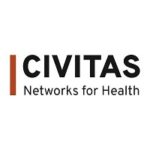 This past August, The Network for Regional Healthcare Improvement (NRHI) and the Strategic Health Information Exchange Collaborative (SHIEC) announced a formal affiliation between the two organizations to form a new organization named Civitas Networks for Health. The organization serves as a platform for local nonprofit health collaboratives and health information exchanges to grow and thrive.
This past August, The Network for Regional Healthcare Improvement (NRHI) and the Strategic Health Information Exchange Collaborative (SHIEC) announced a formal affiliation between the two organizations to form a new organization named Civitas Networks for Health. The organization serves as a platform for local nonprofit health collaboratives and health information exchanges to grow and thrive.
Civitas News
The first annual #Together4Health2022 conference organized by Civitas Networks for Health and DirectTrust was held in San Antonio, TX August 21 – 24. Read our coverage.
An excellent recap of the conference from J2 Interactive. Read their coverage.
Civitas Networks for Health Selects Velatura Public Benefit Corporation as a Technology Solution Partner for the Patient Centered Data Home® Initiative – Newly formed partnership elevates the role of HIEs in interstate data exchange, creates new opportunities for national exchange.
State HIE News
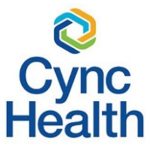 CyncHealth Named Certified Data Partner for NCQA’s Data Aggregator Validation Program
CyncHealth Named Certified Data Partner for NCQA’s Data Aggregator Validation Program
CyncHealth (@CyncHealth), Nebraska’s designated state-wide health information exchange, announced it is among the first two organizations to earn the status of Certified Data Partner for the National Committee for Quality Assurance (NCQA) Data Aggregator Validation (DAV) program.
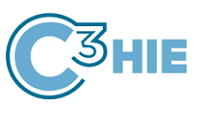 HASA HIE Changes Name to C3HIE: Connected, Collaborative, Community
HASA HIE Changes Name to C3HIE: Connected, Collaborative, Community
HASA, a non-profit, community HIE in Texas, announced that it has changed its name and brand identity to C3HIE to reflect its new vision of helping the healthcare community become more connected and collaborative.
Industry and Contract News
The Sequoia Project’s Data Usability Workgroup Releases First Deliverable for Public Feedback – The Sequoia Project (@sequoiaproject), a non-profit and trusted advocate for nationwide health information exchange, announced the release of Data Usability Workgroup Implementation Guide, Version 0.1 and is seeking public feedback through Friday, October 14, 2022. This implementation guide covers the identified priority use cases that can be readily adopted within health information exchange vendors, implementers, networks, governance frameworks and testing programs.
Santa Cruz Health Information Organization (SCHIO) Chooses Verato to Expand Services and Improve Patient Data – Verato (@Verato_Software), the identity experts for healthcare, announces its engagement with Santa Cruz Health Information Organization (SCHIO), which will enable the health information exchange (HIE) to create a stronger foundation of patient data using Verato® Universal Identity Platform.
MedAllies Selects Lyniate for Enhanced Identity Data Management Capabilities – Lyniate, a healthcare data interoperability company announced MedAllies, a multimodality connectivity services company, has chosen Lyniate Enterprise Master Patient Index (EMPI) by NextGate to better serve its healthcare clients and partners. As the healthcare industry continues to shift toward a more consumer-centric approach to interoperability, MedAllies maintains its commitment to providing connectivity services to thousands of healthcare providers and organizations across the country. The company turned to Lyniate for its proven identity management solutions and unparalleled approach to facilitating real-time data exchange.
Hires and Openings
Center for Medicare and Medicaid Innovation (CMMI) – Health Insurance Specialist
This position is located in the Department of Health & Human Services (HHS), Centers for Medicare & Medicaid Services (CMS), Center for Medicare and Medicaid Innovation(CMMI), Learning and Diffusion Group.
As a Health Insurance Specialist, GS-0107-14, you will provide technical expertise as a Senior Advisor in the development and implementation of learning systems and large-scale initiatives employing data driven, quality improvement, and human centered design methods.
Interoperability Market
According to Allied Market Research, the healthcare interoperability solutions market size was valued at $5,320.0 million in 2020, and is expected to reach $21,544.6 million by 2030, registering a CAGR of 14.9% from 2021 to 2030. Interoperability in healthcare refers to timely and secure access, integration and use of electronic health data so that it can be used to optimize health outcomes for individuals and populations. As populations around the world age and people live longer, interoperability and data sharing are going to become increasingly critical for delivering effective healthcare. Interoperability is the ability of two or more systems to exchange health information and use the information once it is received.
According to the report published by Fior Markets, the global healthcare data interoperability market is expected to grow from USD 2.83 billion in 2020 and to reach USD 5.80 billion by 2028, growing at a CAGR of 9.38% during the forecast period 2021-2028. The primary reasons driving healthcare interoperability market growth include a growing focus on patient care, a growing need to tighten healthcare costs, and government measures to improve patient experience of treatment. System interoperability, information interchange, and data availability are all important factors in improving health outcomes. Individual health data is mobilized throughout the whole range of care providers in health organizations, enabling coordinated, safe, and high-quality treatment that supports payment reforms, transparency efforts, and individuals’ ability to control their health.
ONC's Cures Act Final Rule
In May of 2020 the 21st Century Cures Act: Interoperability, Information Blocking, and the ONC Health IT Certification Program released by the ONC and published in the Federal Register. Here is a quick timeline.
Certification
- 6/30/20 – General Effective Date
- 4/5/21 – Compliance requirements start for information blocking, assurance, and API
- 4/5/21 – HIT developers prohibited from restricting certain communications
- 12/15/21 – Submit initial real world testing plans
- 4/1/22 – 1st attestation to conditions of Cert required
- 12/31/22 – New HL7 FHIR API capability and other update criteria must be made available
- 3/15/23 – Submit initial real world testing results
- 12/31/23 – EHI export capability must be made available
The TEFCA Players
ONC Recognized Coordinating Entity (RCE)
 The Recognized Coordinating Entity (RCE) is responsible for developing, implementing, and maintaining the Common Agreement component of the Trusted Exchange Framework and Common Agreement (TEFCA). The Common Agreement is the baseline technical and legal requirements for health information networks to share electronic health information and is part of the 21st Century Cures Act (Cures Act).
The Recognized Coordinating Entity (RCE) is responsible for developing, implementing, and maintaining the Common Agreement component of the Trusted Exchange Framework and Common Agreement (TEFCA). The Common Agreement is the baseline technical and legal requirements for health information networks to share electronic health information and is part of the 21st Century Cures Act (Cures Act).
In addition they will collaborate with ONC to designate and monitor Qualified Health Information Networks (QHIN), modify and update an accompanying QHIN Technical Framework, engage with stakeholders through virtual public listening sessions, adjudicate noncompliance with the Common Agreement, and propose sustainability strategies to support TEFCA beyond the cooperative agreement’s period of performance.
2022 TEFCA Timeline
Q1 of 2022
- Publish Common Agreement Version 1
- Publish QHIN Technical Framework (QTF) – Version 1 and FHIR Roadmap
- Initiate work to enable FHIR-based exchange
- Public education and engagement
Q2 of 2022
- QHINs begin signing Common Agreement and applying for designation
Q3 and Q4 of 2022
- Onboarding of initial QHINs
- Additional QHIN applications processed
- RCE establishes Transitional Council
- RCE begins designating QHINs to share data
- Prepare for TEFCA FHIR exchange pilots
Deep Dive – QHIN Application, Onboarding, and Designation Process
When: Monday, September 19
Time” 11:00 a.m. – 2:00 p.m. ET
Register for this event.
The Recognized Coordinating Entity (RCE) will host a 3-hour deep dive webinar focusing on QHIN eligibility and the application, onboarding, and designation process. There will be opportunities for attendees to submit questions.

